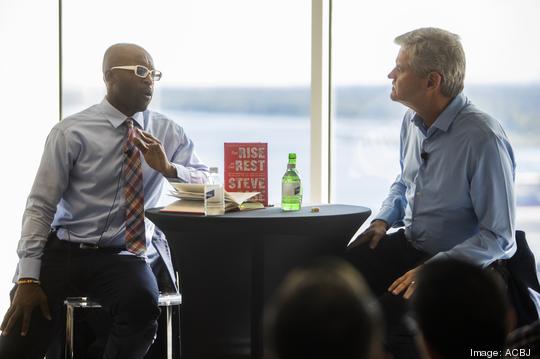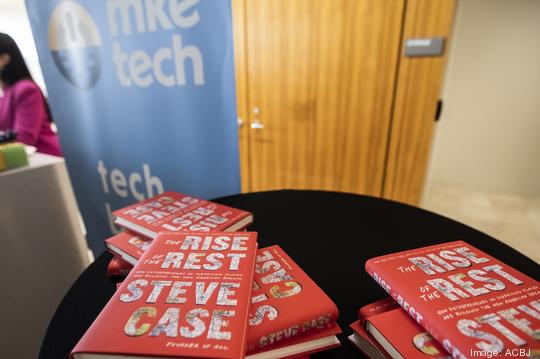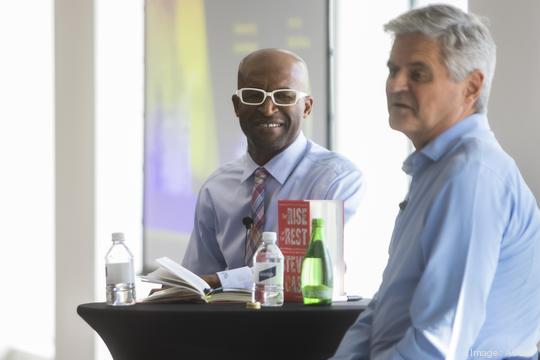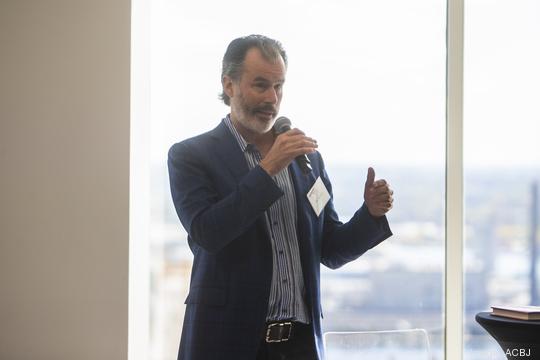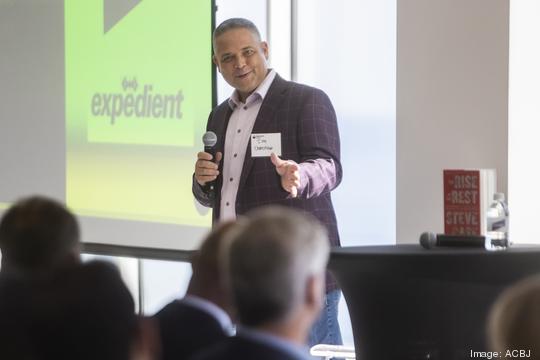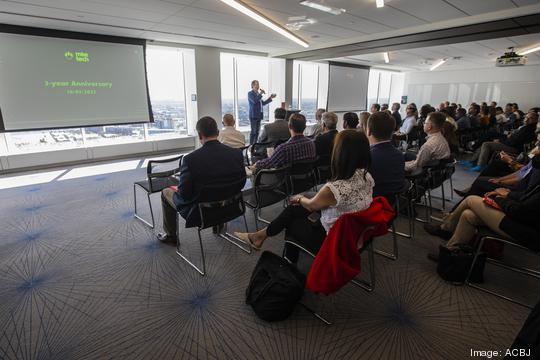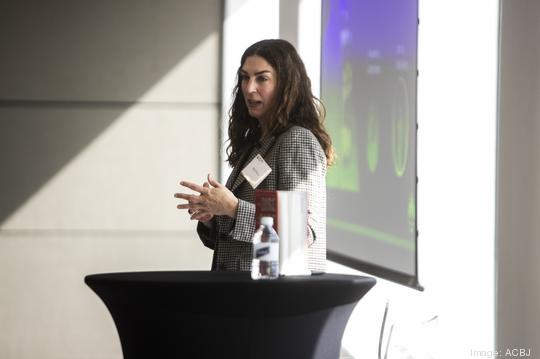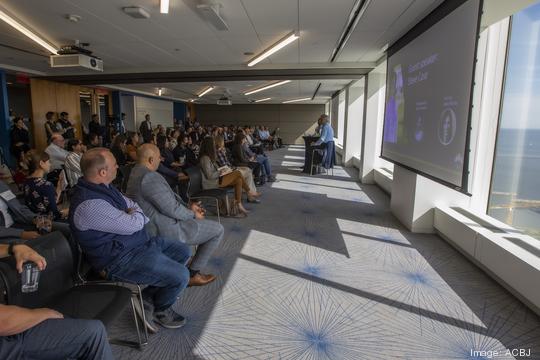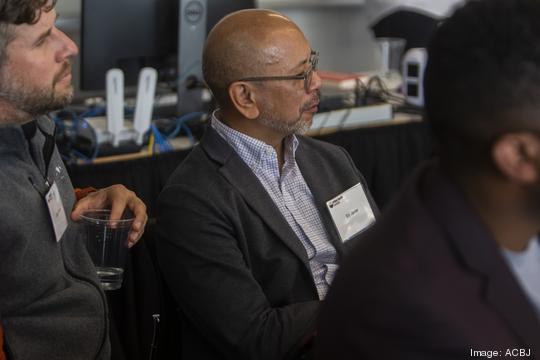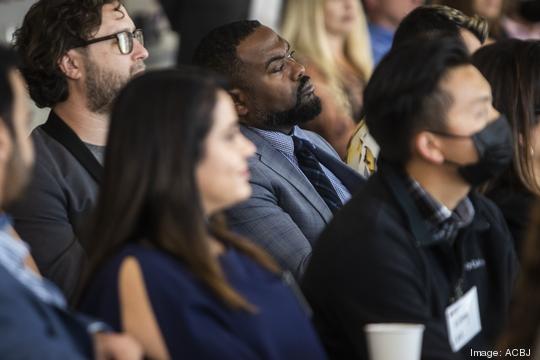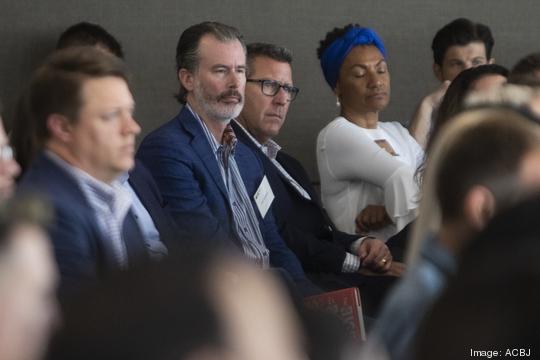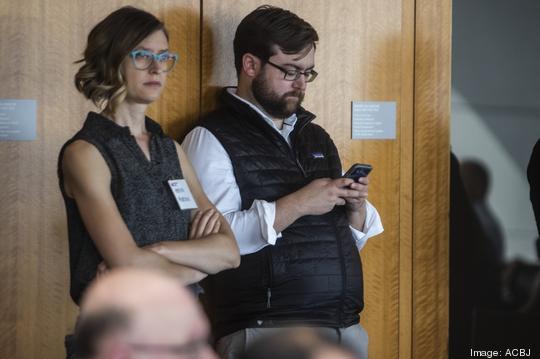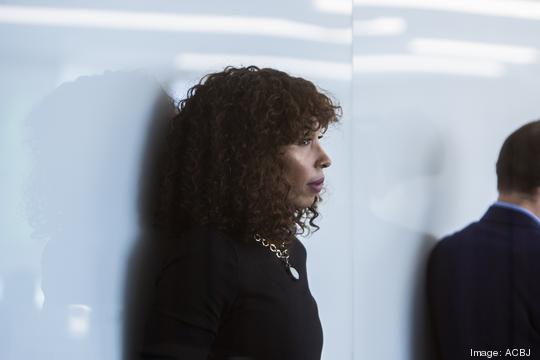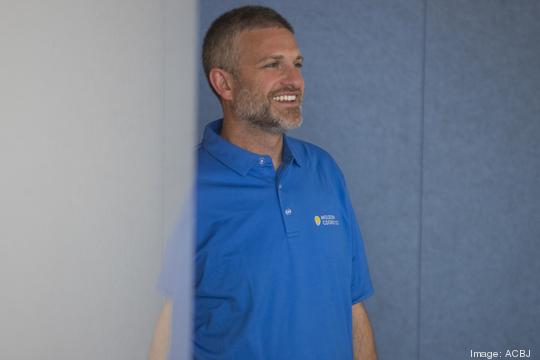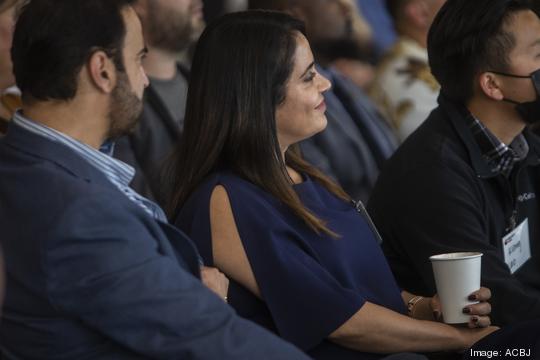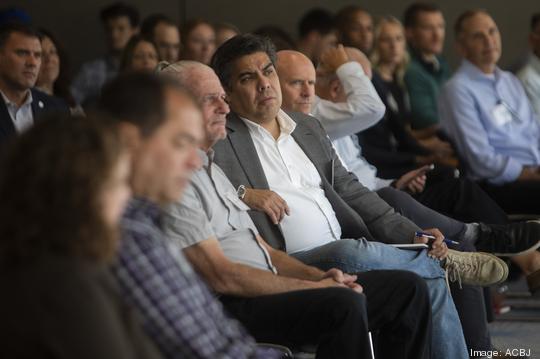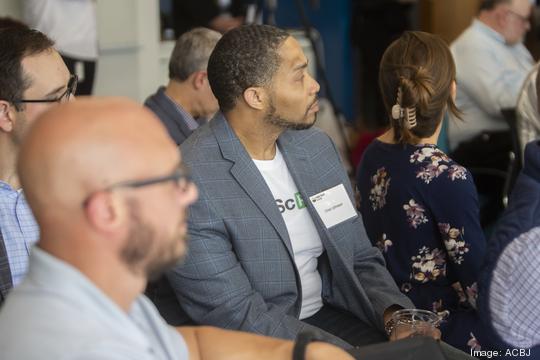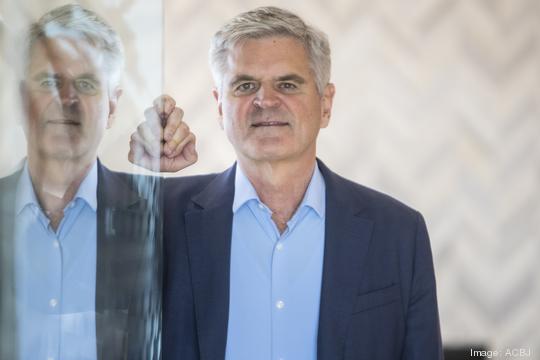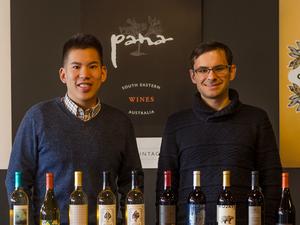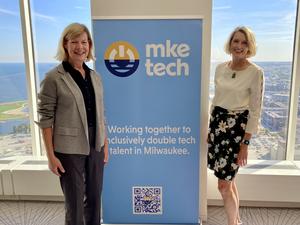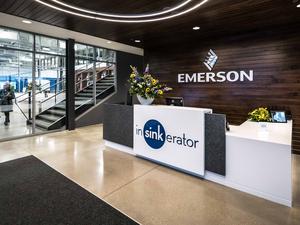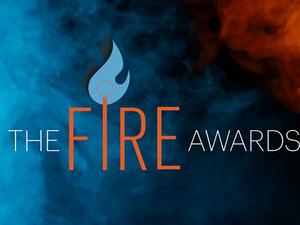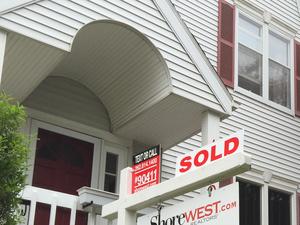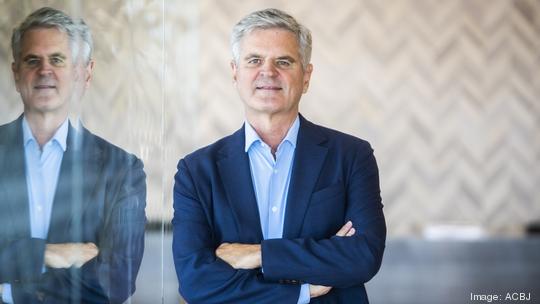
Since leaving America Online in 2003 after its merger with Time Warner, AOL co-founder and former CEO and chairman Steve Case has turned to venture capitalism.
His firm Revolution, based in the Washington, D.C., area, is specifically focused on backing entrepreneurs across the U.S. in places other than the traditional startup hubs of Silicon Valley, New York and Boston. Geographic inclusion has become a passion for Case, who was born in Hawaii a year before it became a U.S. state.
Between 2014 and 2020, Case and the Revolution team completed eight bus tours visiting 43 U.S. cities to meet startup founders, investors and other innovation ecosystem builders. At each stop, they held a pitch competition and invested $100,000 in the winning startup.
The tour included stops in Green Bay and Madison, which are featured in his recently published book about the experience, "The Rise of the Rest: How Entrepreneurs in Surprising Places are Building the New American Dream."
Revolution didn't visit Milwaukee on a Rise of the Rest bus tour but Case was in Milwaukee Wednesday as part of MKE Tech Week and to promote the book.
AOL founder Steve Case speaks at MKE Tech Week event
Case spoke with the Milwaukee Business Journal and Wisconsin Inno in an exclusive interview prior to addressing a packed room of Milwaukee corporate executives at Baird's headquarters downtown. The following Q&A has been edited for clarity and length.
Who have you met during your visit to Milwaukee and what are your initial impressions?
"This morning, we had three groups of entrepreneurs, probably 40 or 50 total ... and then we just had a lunch with a number of larger companies. I'd say there's interesting momentum building in Milwaukee and a sense that maybe it's time to lean into this a little more and focus more on startups. The entrepreneurs I think love living here, but said it's a little more difficult to raise money here, a little more difficult to get the corporate partnerships here.
"Part of our message — the reason I wrote the book — is, 'How do you create more of that connectivity, drive more collaboration so Milwaukee can really create some of the companies of the future and maybe help create some of the industries of the future?' And fewer people growing up or going to school in Milwaukee will decide to leave to go someplace else because they'll realize that there are great things happening here in the innovation economy. So I was encouraged."
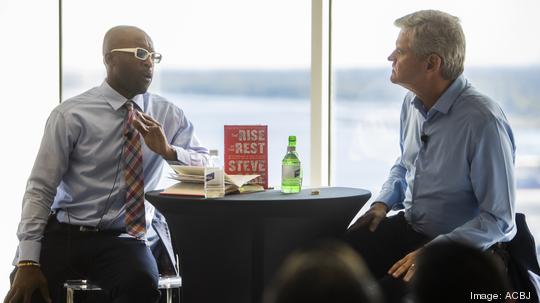
A criticism I've heard of Milwaukee's startup ecosystem is that it's siloed — that's a word that's used a lot. What would your advice be to Milwaukee's ecosystem to overcome that siloed approach? Do you think it's a problem?
"I think it's a problem and it, I think, limits some of what's possible. I would just remind people of the African proverb, 'If you want to go quickly you can go alone but if you want to go far, you must go together.'
"After visiting dozens of cities with our bus tours and now investing with our fund in 100 different cities, one of the things that clearly results in an acceleration of the growth of a startup community is collaboration. Less siloed, more of a network. ... Everybody has to do their part to create a more thriving startup community and put Milwaukee on the map as a great startup hub."
You've visited Madison and Green Bay as well. What are your thoughts on multi-city collaboration? Do you think that's something Wisconsin should do and how should we go about that?
"Each of them are obviously different. We were intrigued with what was happening with Madison around the university and some of the companies like Epic that have grown significantly and spun off other companies in the health tech space... We've made a number of investments there. We're also intrigued with what Green Bay was doing, particularly with the Packers leveraging their brand and credibility and also the real estate across from Lambeau Field to create Titletown Tech in partnership with Microsoft.
"It seems like Milwaukee is also trying to figure out what is its unique way to build on this. ... But beyond the three, saying, 'How do we think about it as a regional cluster?' A lot of people thinking about Wisconsin — whether it be big companies or individual people or investors — probably will think about it being Milwaukee plus Madison plus Green Bay, as opposed to Milwaukee versus Madison versus Green Bay."
Based on what you've heard today, are there any unique aspects of Milwaukee you think it should double down on?
"We've heard from some entrepreneurs that are focused on certain technologies; water technologies, a lot of battery technology. A lot of folks talking about, because of some of the manufacturing based here, there could be some interesting companies built in partnership with some of the big companies."
Your book talks about creating jobs through startups, but what would you tell corporations who are worried about supporting startups because they don't want to compete for that talent?
"We've found in cities we've been in so far that big companies benefit if there's a thriving startup community; the cities themselves are able to attract more talent and that ends up helping all the companies in the cities. ... A lot of the big companies in cities like Cincinnati actually have worked together collaboratively to be more attractive to entrepreneurs, to try to attract people into the startup community. Also, I think if there are more entrepreneurial ventures in the community, some of those will likely relate to your industry and could help you be more competitive."
Your book focuses a lot on geographic inclusion. What are your thoughts on creating racial equity and other types of equity within an ecosystem?
"It's critical. Some of our focus is on place but over the last decade, it's also been focused on people. There's a whole chapter in the book talking about the diversity imperative.
"I talked to a Black founder (in Milwaukee) this morning who said, 'It's really hard to get people to pay attention. I don't really have the networks that other people have.' So as part of this focus on collaboration, I think it's important not just to think about it in a place area — How do we help Milwaukee rise? — but how do we create a more inclusive startup community in Milwaukee?"
What's your advice for Milwaukee's tech ecosystem going forward?
"This is a moment. 'Rise of the Rest' has been building over the last decade. ... But the pandemic has been an accelerator, it's been a tipping point. More people are rethinking how they want to live and how they want to work and where they want to live and where they want to work and remote work creates a lot opportunities.
"I think this is a moment for every city and I just hope Milwaukee recognizes that and does come together in a more collaborative way — less siloed, more collaborative, and (in) a more inclusive way to seize the moment and turn it into more of a sustainable movement that will maximize the likelihood that Milwaukee's a thriving community 25 years from now."
